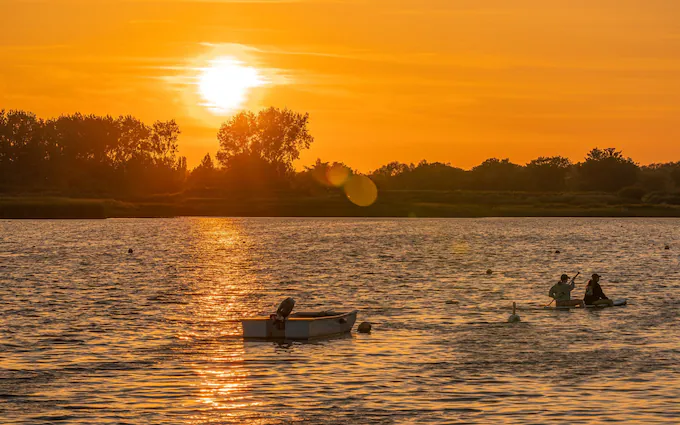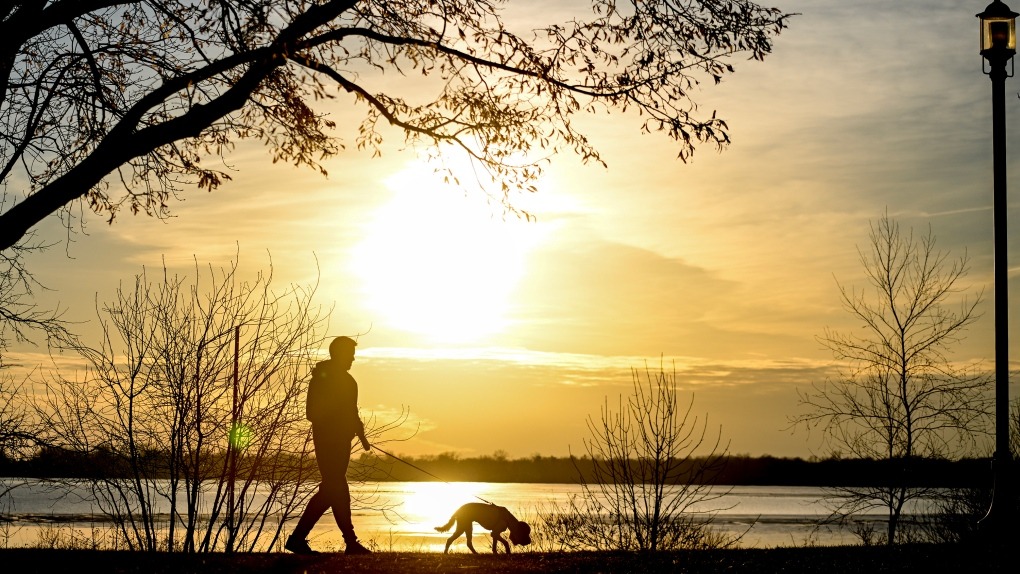Warm weather is a phenomenon that is both cherished and dreaded, depending on where you live and how you perceive it. For many, it signals the arrival of summer, a season filled with outdoor activities, vacations, and long days. However, weather can also bring challenges, such as heatwaves, health risks, and environmental concerns. In this article, we will explore the nature of warm weather, its effects on our daily lives, and how we can adapt to it in a way that minimizes its negative impacts while maximizing its benefits.
Understanding Warm Weather

Warm weather typically occurs when the sun is at its highest point in the sky, which usually happens during the summer months in most regions. The tilt of the Earth’s axis causes different parts of the planet to receive varying amounts of sunlight throughout the year. When a region is tilted towards the sun, it experiences more direct sunlight, leading to warmer temperatures.
Warm weather is not uniform across the globe. The equator, for instance, experiences relatively constant warm weather throughout the year due to its consistent exposure to direct sunlight. In contrast, temperate regions, such as those in North America and Europe, experience significant seasonal variations, with weather concentrated in the summer months.
The intensity of warm weather can also vary significantly depending on local factors such as altitude, proximity to bodies of water, and prevailing wind patterns. For example, coastal areas often experience milder temperatures due to the moderating effect of the ocean, while inland areas may experience more extreme heat.
The Effects of Warm Weather
1. Health Impacts
One of the most significant effects of warm weather is its impact on human health. While moderate warmth is generally beneficial, promoting outdoor activity and boosting mood, extreme heat can pose serious health risks.
Heat exhaustion and heatstroke are the most severe health issues associated with warm weather. Heat exhaustion occurs when the body loses too much water and salt through sweating, leading to symptoms such as dizziness, weakness, and nausea. If left untreated, heat exhaustion can progress to heatstroke, a life-threatening condition where the body’s temperature regulation system fails, leading to a rapid rise in body temperature, confusion, and loss of consciousness.
Certain populations are more vulnerable to the health effects of warm weather. Older adults, young children, and individuals with chronic health conditions are at higher risk of heat-related illnesses. Additionally, people who work or exercise outdoors are more exposed to the dangers of extreme heat.
2. Environmental Impacts

Warm weather also has significant environmental impacts. One of the most pressing concerns is the effect of prolonged warm weather on ecosystems. Many plants and animals are adapted to specific temperature ranges, and prolonged periods of weather can disrupt their natural cycles.
For example, warm weather can accelerate the melting of snow and ice, leading to changes in water availability for both humans and wildlife. In some regions, this can result in droughts, which can devastate crops, reduce water supplies, and increase the risk of wildfires.
Moreover, warm weather can exacerbate air pollution. High temperatures can increase the formation of ground-level ozone, a key component of smog. This can lead to poor air quality, which poses health risks, particularly for individuals with respiratory conditions such as asthma.
3. Economic Impacts
Warm weather can have both positive and negative economic impacts. On the positive side, warm weather can boost certain industries, such as tourism, agriculture, and construction. Tourists are more likely to visit warm-weather destinations, and crops such as fruits and vegetables often thrive in warmer temperatures.
However, extreme warm weather can also have negative economic consequences. For example, heatwaves can increase energy demand as people use air conditioning to stay cool. This can strain power grids and lead to higher energy costs. Additionally, prolonged periods of extreme heat can damage infrastructure, such as roads and railways, leading to costly repairs.
How to Adapt to Warm Weather
Given the various impacts of warm weather, it is essential to adopt strategies to adapt and minimize its negative effects. Here are some ways to cope with warm weather:
1. Stay Hydrated
One of the most important things to do during warm weather is to stay hydrated. The body loses a significant amount of water through sweating, and it is crucial to replenish this lost fluid to avoid dehydration. Drinking water regularly throughout the day is essential, especially if you are spending time outdoors or engaging in physical activity.
It is also advisable to avoid drinks that can dehydrate you, such as alcohol and caffeinated beverages. Instead, opt for water, herbal teas, or electrolyte-replenishing drinks to keep your body hydrated.
2. Dress Appropriately
Wearing the right clothing can make a big difference in how you feel during warm weather. Light, loose-fitting clothing made from breathable fabrics such as cotton can help keep you cool. It is also important to wear a hat and sunglasses to protect yourself from the sun’s rays.
If you are going to be outside for an extended period, consider wearing sunscreen to protect your skin from harmful UV rays. Sunburn not only causes pain and discomfort but also increases the risk of skin cancer.
3. Plan Outdoor Activities Wisely

If you enjoy spending time outdoors, it is important to plan your activities wisely during warm weather. The sun is usually at its strongest between 10 a.m. and 4 p.m., so it is best to schedule outdoor activities for the early morning or late afternoon when the temperatures are cooler.
If you need to be outside during the hottest part of the day, take frequent breaks in the shade or in air-conditioned spaces to cool down. This is especially important if you are engaging in strenuous activities such as exercising or working outdoors.
4. Use Air Conditioning Wisely
Air conditioning is one of the most effective ways to stay cool during warm weather, but it is important to use it wisely to avoid high energy bills and reduce environmental impact. Set your thermostat to a comfortable but not excessively low temperature, and use fans to help circulate the cool air.
It is also a good idea to keep blinds or curtains closed during the hottest part of the day to block out the sun’s heat. This can help reduce the amount of work your air conditioner has to do, saving energy and money.
5. Check on Vulnerable Individuals
During periods of extreme warm weather, it is important to check on vulnerable individuals such as the elderly, young children, and those with chronic health conditions. Make sure they have access to cool environments and are staying hydrated.
If you know someone who does not have air conditioning, consider inviting partaitogel them to your home or helping them find a cooling center in their community. Many cities and towns open cooling centers during heatwaves to provide a safe place for people to stay cool.
6. Be Prepared for Heatwaves
Heatwaves are prolonged periods of excessively warm weather, and they can be particularly dangerous if you are not prepared. It is important to have a plan in place for how to stay cool during a heatwave.
This may include stocking up on water and other supplies, ensuring that your air conditioning is in good working order, and knowing where to go if you need to escape the heat. It is also important to stay informed about weather conditions and heat advisories in your area.
Conclusion Warm Weather
Warm weather is a natural part of the Earth’s climate system, and it brings both benefits and challenges. While it is often associated with pleasant activities such as beach trips and barbecues, it can also pose significant risks to health, the environment, and the economy. By understanding the effects of warm weather and taking steps to adapt, we can enjoy the benefits of warm weather while minimizing its negative impacts. Whether it’s staying hydrated, dressing appropriately, or planning outdoor activities wisely, there are many ways to stay safe and comfortable during warm weather.
Read More Article About “Schotel Tahu: Alternatif Sehat dan Lezat untuk Menu Keluarga“



